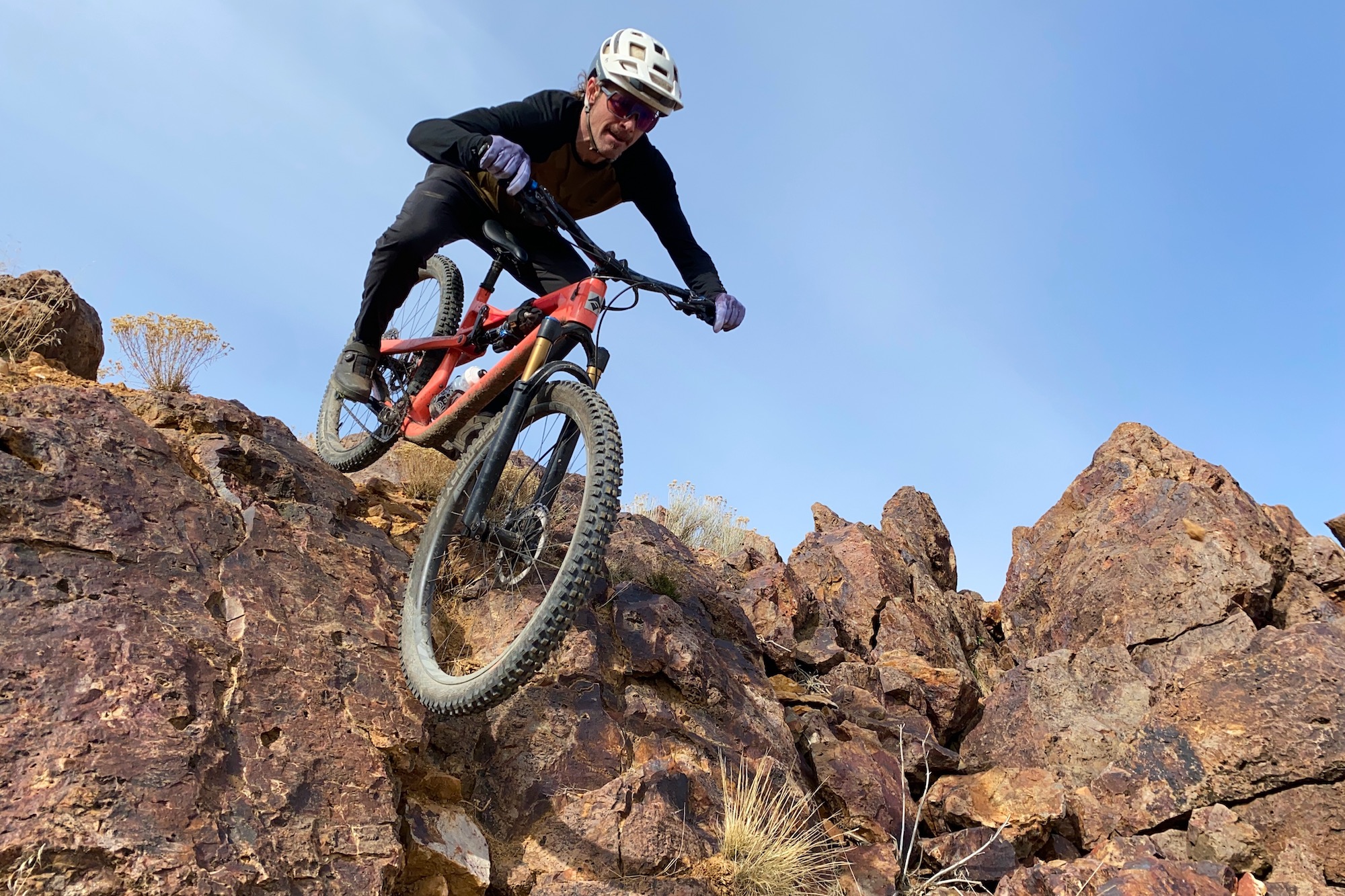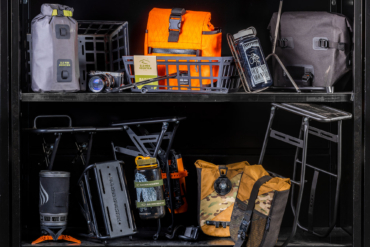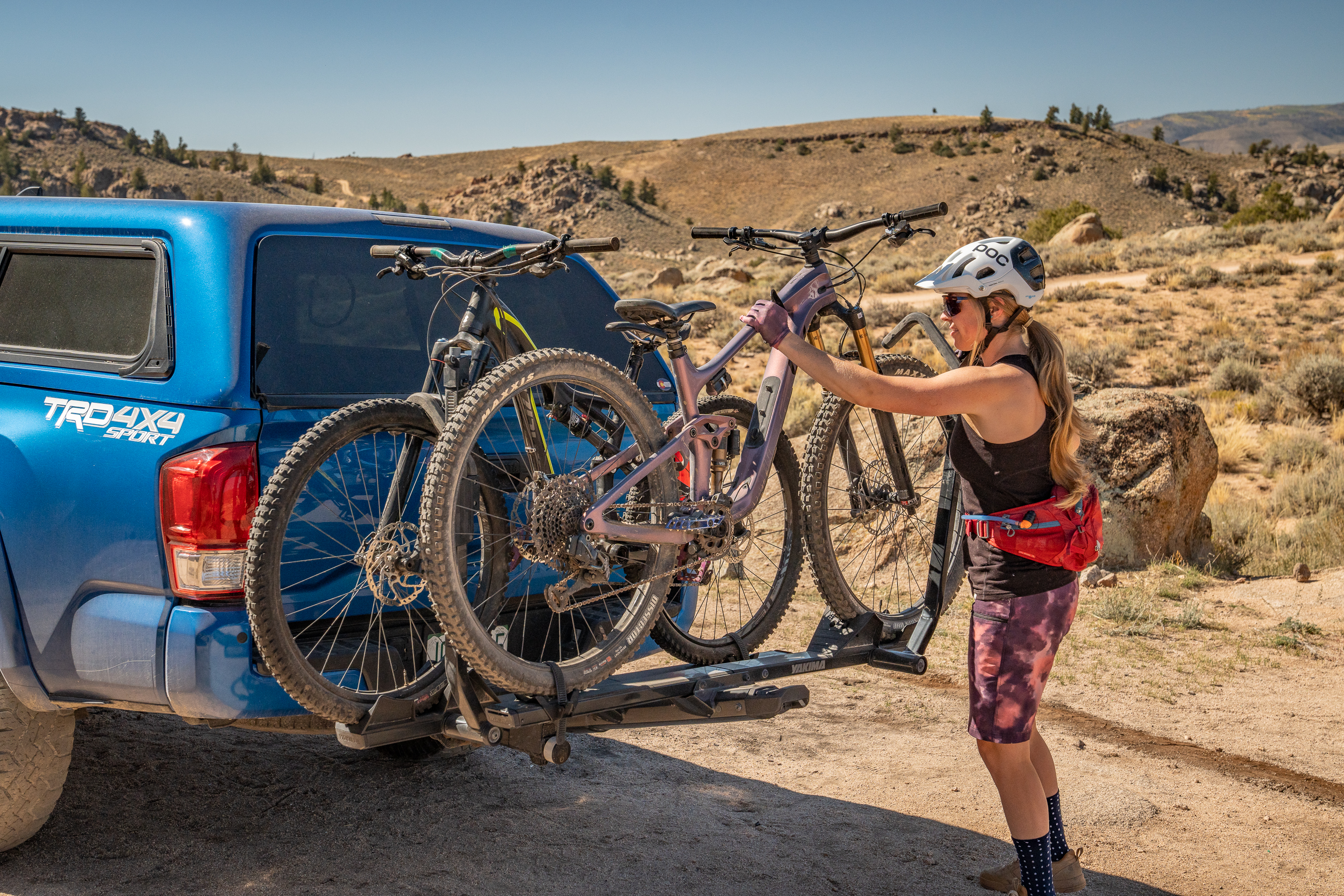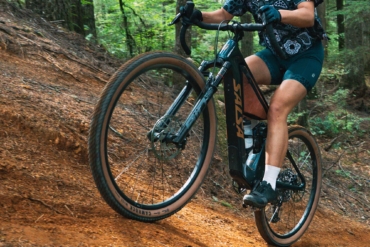Circa 1974, a renegade movement took place with freethinkers riding clunkers off road. This wild idea sparked in Crested Butte, Colo., and Marin County, Calif. Folks rode Schwinn paper-delivery bikes with balloon tires on the cow trails, up fire and mining roads in the mountains, and through the woods. Others Frankensteined bikes with parts pulled off single-speed junkers and 10-speed road bikes.
Those salvaged two-wheel creations were the earliest iteration of the modern mountain bike. Nearly 5 decades later, some mountain bike pioneers are still creating bikes today — but there are also so many more companies. Whether you’re just getting started or have been riding for a while, it can be overwhelming to narrow down the type of bike you need and the brand that’s a good match.
To help you get to know the products, mission, and background of the industry’s leading companies, we highlighted the top 15 in this guide. Beyond our passion for shredding trails and extensive product testing, we’ve chatted with countless peers, researched, and interviewed many of these companies firsthand. These brands are delivering a huge spectrum of the highest-quality, most affordable, and most progressive bikes for adventure today.
If you need a refresher on the types of mountain bikes that exist and how to pick the best one for you, jump to the bottom for our How To Buy a Mountain Bike guide.
The Best Mountain Bike Brands
Specialized

Specialized manages to push big innovation while continuing to deliver some of the longest-standing classic mountain bike models in the industry. Founded half a century ago, the brand created the Stumpjumper in 1981, the globe’s first mass-produced mountain bike.
Most recently, the brand pioneered the Turbo Levo SL, an ultralight electric mountain bike that blends the Stumpjumper with the Turbo Levo e-bike — and is 10 pounds lighter. The trimmed weight is thanks to the new SL motor battery system the team invented. Regardless of being electric, the bike is maneuverable and capable on the trails.
The brand also delivers gravel, road, and entry-level mountain bikes.
- Year founded: Early ’70s
- Headquarters: Morgan Hill, CA
- Company size: 1,350
- Popular models: Stumpjumper, Rockhopper (both of which we’ve owned)
Santa Cruz

Known for top-tier, full-suspension mountain bikes, Santa Cruz has been an innovator for several decades. Founded by skateboard legend Rob Roskopp, the brand started when trail bikes with rear suspension were still a rare gem.
The company specializes in lightweight carbon fiber and aluminum models with a variety of suspension ranges. Its focus is trail-style models, but the lineup includes designs for gravel and jumps as well as an electric mountain bike.
The brand even has a downhill race team, the Santa Cruz Syndicate. If you’re looking for a longer-travel bike, check out the V10, Nomad, or Bullit.
- Year founded: 1993
- Headquarters: Santa Cruz, CA
- Company size: Unavailable
- Popular models: Hightower, 5010, Tallboy
Check Price at BackcountryCheck Price at Evo
Juliana

Juliana exclusively sells high-quality women’s mountain bikes. The geometry of each model is developed by the brand’s sibling company, Santa Cruz. The brand was spearheaded and named after professional rider and Olympian Juliana Furtado.
For each build-out, the shocks are tailored to lightweight riders, and the frame sizes run down to XS. The bikes also have women-specific grips and saddles, which many leaders in the industry say is the most important piece to be anatomically designed. If you have a smaller stature and are looking for a comfortable mountain bike, give one of its six models a test ride.
- Year founded: 1999
- Headquarters: Santa Cruz, CA
- Company size: Unavailable
- Popular models: Roubion, Furtado
Check Price at BackcountryCheck Price at Evo
Ibis Cycles

Ibis has been at the forefront of mountain bike design since the rise of the sport. Founder Scot Nicol dove into frame construction under the tutelage of pioneers Joe Breeze and Charlie Cunningham, which ultimately led to the company’s launch circa 1980.
Roxy Lo, one of the only female frame builders in the entire bike industry, works for Ibis too. The brand focuses on making a batch of well-crafted, tailored designs — it doesn’t try to please every type of rider. The carbon Mojo is one of its six full-suspension mountain bikes, and the Ripmo is a long-travel 29er, a match for enduro racers.
Bonus: Lo helped to design the Ripmo with frame sizes that can fit 5-foot-tall riders.
Check Price at Jenson USACheck Price at Backcountry
GT Bicycles

Like several foundational companies in the mountain bike world, GT Bicycles started with BMX frames. The company was co-founded by Gary Turner, who spearheaded modern BMX bikes, and Richard Long. Today, GT Bicycles is a mega-company able to provide economic price tags across a myriad of bikes.
The brand launched the industry’s first-ever carbon gravel bike in 2015. Dubbed the Grade Carbon Pro, the bike was named Bike Radar’s 2020 Gravel Bike of the Year. The bike is as light as a road bike, has disc brakes, and features the brand’s triple triangle design.
The seat stays overlap the seat tube and top tube, and the stays are not bonded to the seat tube. The result? Efficiency and flex for a smooth ride on bumpy terrain. GT also offers full-suspension, hardtail, and electric mountain bikes.
- Year founded: 1972
- Headquarters: Santa Ana, CA
- Company size: 1,200
- Popular models: Grade Carbon Pro
Check Price at Jenson USACheck Price at Backcountry
Trek Bikes

Four decades ago, Trek Bikes entered the industry with touring bikes, and it has consistently delivered dependable models ever since. Today the brand has a reputation for entry-level hardtail mountain bikes made for handling easy, smoother trails. But Trek builds a variety of designs across nearly all price points.
The industry-leading brand delivers cross-country, full-suspension downhill, and electric mountain bike models as well as higher-end trail bikes and lightweight racing bikes. It provides a lifetime warranty on its frames.
If you’re not fixated on snagging a bike with groundbreaking innovation and simply looking for a dependable bike, check out Trek’s lineup.
Trek has an online bike-builder software that allows you to customize your dream bike from the ground up.
- Year founded: 1975
- Headquarters: Waterloo, WI
- Company size: 2,000
- Popular models: Marlin 5, Roscoe 8
Diamondback

Back in the ’70s, Diamondback’s first bikes fed the BMX crowd. The brand evolved into a mountain bike company, and today its goal is to offer comfortable, approachable off-road bikes for newcomers.
The company launched a lineup of hardtail bikes with 1x drivetrain starting at $700: the Hook, Line, and Sync’R. The brand also builds high-end offerings like the Mission 1 Carbon ($4,000) and still aims to provide a modest price for the materials.
Diamondback offers road, gravel, fat, and e-bikes in addition to its all-mountain, trail, and hardtail mountain bikes.
- Year founded: 1977
- Headquarters: Kent, WA
- Company size: Unavailable
- Popular models: Release 5C, Atroz 2
Check Price at DiamondbackCheck Price at Backcountry
Giant Bicycles

Giant is a mammoth-size company delivering a huge range of bicycle models at a moderate price point. In fact, Giant is the world’s largest bike manufacturer by revenue. Giant even manufactures bike frames for several other brands including Trek and Scott.
Founder King Liu started the company as a frame manufacturer and then launched Giant bicycles a decade later. After leading the company for 4 decades, Liu resigned as chairman in 2016 at 82 years old.
Giant’s designs include everything from a lightweight cross-country race bike to a long-suspension enduro bike. You can also find trail bikes and an electric mountain bike.
The brand’s most time-honored trail and all-mountain bike is the Trance, first introduced 15 years ago. If you’re looking for a dependable mountain bike at a lower price point and don’t need all the newest tech or aggressive frame engineering, Giant is a classic household choice.
- Year founded: 1972
- Headquarters: Taichung, Taiwan
- Company size: 11,000
- Popular models: Talon, XTC Advanced
Salsa Cycles

Delivering top-shelf gravel grinder, bikepacking, and fat bikes, Salsa Cycles has carved a niche for itself with adventure-focused rides. More recently, the brand has worked to develop trail-centric mountain bikes for a broader appeal.
Its bikes support the rider experience rather than aiming to be the lightest or speediest build. The Horsethief and Spearfish models both have space for two water bottle holders, a rarity on full-suspension trail bikes.
If you’re looking for an efficient hardtail or playful full suspension, check out Salsa.
- Year founded: 1994
- Headquarters: Bloomington, MN
- Company size: Unavailable
- Popular models: Horsethief, Warbird
Check Price at REICheck Price at Salsa Cycles
Pivot Cycles

Pivot has quickly grown a following as a detail-oriented brand, emphasizing technology and geometry. That translates into bikes that ride smoothly and efficiently — and have a higher price tag. Given the company was founded by top-dog mountain biker Chris Cocalis, the brand’s rise in popularity shouldn’t come as a surprise.
Its queue of bikes is led by trail and enduro bikes with ample travel for rocky, technical trails. You’ll also find models made for gravel, cross-country, and downhill as well as an e-bike.
Check Price at BackcountryCheck Price at Pivot Cycles
Yeti Cycles

Yeti’s M.O. is high-performance mountain bikes with a premium price tag. The lineup of seven models includes enduro builds, hence the support of Enduro World Series Champion Richie Rude.
Among its successes, Yeti created a unique rear suspension design that provides supreme support mid-stroke and effective pedaling power, dubbed the Switch Infinity, in 2014. We’ve tested several recent models with the technology, including the SB100 and SB130, and they performed super well.
Check Price at BackcountryCheck Price at Jenson USA
Cannondale

Cannondale has been building mountain bikes since 1984. The brand isn’t as popular today as it was in its heyday, but still has a foothold in pushing new designs.
The brand recently developed one of the lightest full-suspension frames on the market: the carbon Scalpel SE. Historically, the company has been an innovator in using lightweight alloy to construct frames.
Its bikes typically incorporate steeper geometry than a trail or enduro bike, meaning the front tire is tucked under the headset for increased power transfer. It has steered away from the norm at times, like when it introduced an ultralight single-sided suspension fork, the Lefty Ocho, for cross-country racing.
In an effort to be more inclusive, the brand also requires its athlete pool to be comproed of an equal number of males and females.
- Year founded: 1971 (initially building the first-ever bicycle-towed trailer)
- Headquarters: Wilton, CT
- Company size: 207
- Popular models: Scalpel SE, Cujo 1
Check Price at REICheck Price at Cannondale
Liv Cycling

If you’re a woman looking for a bike specifically made for you, here’s a good starting point. The bike world is divided on gender-specific design, but Liv Cycling has made a huge stand.
The brand pioneers female-specific frames based on anatomical and physiological data. And each bike frame size has unique proportions to match that research. One of the biggest differences is that even for a taller woman, her torso is shorter than a man’s.
Liv, which was spearheaded by Giant CFO Bonnie Tu, also offers gear and apparel for women and employs an entirely female team.
The brand recently debuted the Pique Advanced 29er with XS and small frames, a challenging combo and rare in a lineup. The bike received a nod from the 2020 Bicycling Bike Awards.
- Year founded: 2007
- Headquarters: Taichung, Taiwan
- Company size: 200
- Popular models: Pique Advanced Pro 29
Revel Bikes

At age 11, Revel Bikes founder Adam Miller started swooping bikes at garage sales and deconstructing them to sell parts or build his own bicycles. His obsession with bikes never waned. He started Borealis Fat Bikes — introducing the industry’s first-ever carbon fiber model — while racing collegiately.
Then he debuted Why Cycles hardtail gravel and road bikes before starting Revel. The back-to-back momentum fared well.
Right away, the company received accolades for the Revel Rascal 29er, which was named Outside Magazine’s Best Mountain Bike of 2020. The bike features a patented suspension system called the Canfield Balance Formula (CBF) that remains unlocked and neutralizes the rider in variable terrain.
The result is a super comfortable ride across a wide variety of conditions. Beyond Canfield Bikes, Revel is the only company with a license to use the technology.
Revel also cares about sustainability. It’s no secret the manufacturing process for carbon fiber, an important material used to build bicycles, is extremely toxic to the environment and human health. To combat carbon fiber waste, which is not biodegradable and largely ends up in landfills, Revel also made a leap by developing wheels with recyclable carbon.
- Year founded: 2019
- Headquarters: Carbondale, CO
- Company size: 11
- Popular models: Rascal 29er
Check Price at EvoCheck Price at Revel Bikes
Guerrilla Gravity

Guerrilla Gravity is one of the nation’s only bike brands with localized manufacturing — the team constructs all bike parts in-house. It’s able to lower the company’s overall carbon footprint by reducing steps in the supply chain. It’s also more nimble and can reduce inventory, reducing waste while increasing overall quality control.
A big goal with this brand is to help slow down consumerism by providing rider customization so the bike can grow with you versus being replaced. Enter the Modular Frame Platform. Each bike has a universal front triangle, seat stay that can be switched out, and adjustable reach and wheelbase.
The brand is also tackling dirty carbon waste through a patented manufacturing process called Revved Carbon Technology (RCT): an eco-friendly carbon fiber blend that’s recyclable and 300% more impact-resistant than traditional carbon.
- Year founded: 2011
- Headquarters: Denver, CO
- Company size: 50
- Popular models: Trail Pistol, Gnarvana
Check Price at Guerrilla Gravity
How to Buy a Mountain Bike
The No. 1 thing to consider when you start looking to buy a mountain bike is what terrain you’ll ride in most of the time. Where you ride will inform the type of bike that you need.
If you’re dabbling on easy, packed trails and commuting, you might do well with a hybrid bike. Gravel bikes are good for pedaling gravel roads, and touring bikes support long bikepacking trips.
Types of Mountain Bikes
These are general guidelines for the bike frame and suspension to help you consider the type of bike you need where you ride:
Cross-Country
- Smoother singletrack
- Low technicality
- 80-120mm suspension
- 69-degree (or more) head-tube angle
Trail
- Uphill and downhill beginner singletrack, dirt roads
- Some roots, small drops
- 120-150mm suspension
- 66- to 68-degree head-tube angle
All-Mountain, Enduro
- Singletrack with uphill and downhill terrain
- Supports technical terrain like rocks and moderate landings
- 140-180mm suspension
- 65- to 67-degree head-tube angle
Downhill
- Descents on steep trails and riding bike parks
- Supports hitting jumps, sizable drops
- 170-250mm suspension
- Less than 65-degree head-tube angle
Electric Mountain Bike
- Includes electric assistance to amplify pedal power
- Allowed on designated trails only
After you choose the type of bike you’d like, determine your budget. Prices widely vary based on a bike’s specific features, including the frame material, brakes, wheels, seat, dropper seatpost, and suspension package. You can also swap out components and accessories for higher-grade options down the road.
Consider your preferred tire width and wheel diameter, which are generally 27.5 or 29 inches. Tire width for mountain bikes ranges from about 2.3 to 2.5 inches. A larger wheel can feel more stable and has more surface contact and traction that easily rolls over rocks, roots, obstacles, choppy ground, and snow. It’s also heavier.
A smaller wheel is lighter and better for higher speeds on smoother trails. It provides great maneuverability. Some shorter riders feel more comfortable closer to the ground and opt for a 27.5-inch wheel. Ultimately, the choice in wheel diameter and tire width hinges on personal preference.
It’s a stellar idea to research bikes a bit, and then head to your local bike shop and demo a few models. Some shops even offer a demo-to-buy program.









